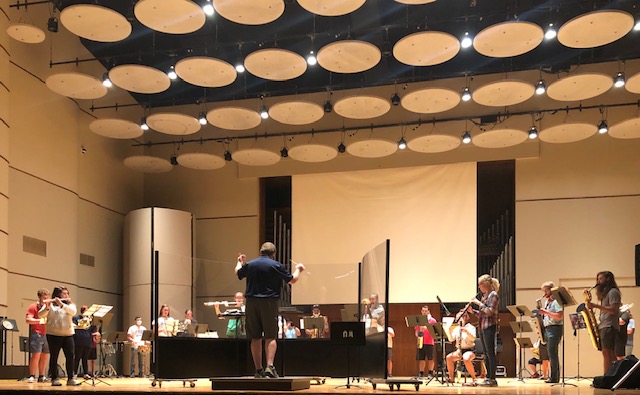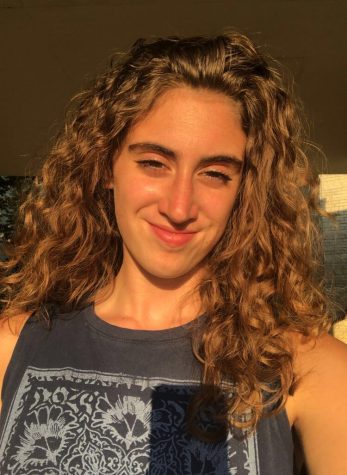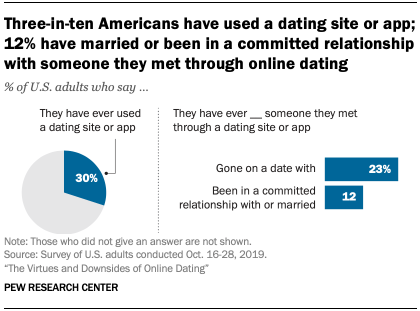Streaming theatre and musical performances online
Performers and faculty members reflect on COVID-19 restrictions that are placed on the music department.
Craig Treinen, Professor and Chair of the Music Department, along with his colleagues, planned and prepared for the changes to the department. They are finding ways to organize their efforts by considering all of the individual instruments and the number of different ensembles in place.
This has caused students to find a new normal, and to discover new opportunities in life when choosing a career path.
“I really didn’t know what to expect in the fall for the ensembles,” said Treinen. “We have way more [restrictions] than anybody on campus. That is just the beast of nature, because we have so many different things that could contribute to a spike. We have to be extremely careful.”
The following changes are in place: Large ensembles are split in half so as to maintain social distancing in White Concert Hall and in all practice rooms. Their rehearsals will last thirty minutes. They will perform their first virtual concert of the semester on Oct. 4. Concerning individual instrumentalists: Vocalists are required to hum, while all of the brass instrument players shall wear “bell covers” and pieces of plexiglass to limit aerosol that occurs when playing. Access to chairs and practice rooms are limited as well.
“All of our experiences this semester are going to be compromised in some way,” said Silas Huff, professor and director of orchestra. “Orchestra and band concerts will be livestreamed. We will do a live concert on stage, except there won’t be an audience there.”
Professor and director of strings section, Zsolt Eder said there is a setback regarding the lack of an audience needed to maintain social distancing.
“As a performer you play differently,” said Eder. “In my experience, when there is a live audience, I find myself giving that sort of extra 10 or 15 percent in terms of intensity, and wanting to communicate something. There is something that an audience gives that really pushes the performer, and that is missing right now.”
The lack of an audience pushes Senior performance major, Rose Taylor, to transition into a part time student while pursuing a cosmetology degree at Washburn Tech.
“I already have a job in the salon,” said Taylor. “It is kind of a perfect opportunity to take. I figured that this was the time to put the performance on pause and do things that I want to get done in life. I am, at least, doing something productive during this time. I am not a principal cellist anymore. I’m not really in the forefront taking care of things.”
Quentin Mallette, a junior trumpet player who is majoring in music education, attends school full-time and adjusts to the new learning styles while adhering to limitations of creating music.
“All rehearsals are super short,” said Mallette. “It means that a lot of work that would be done in person, needs to be done on our own. There’s a lot more independence when it comes to learning our stuff. I’m still just as busy. It is still nice to be back and have a purpose in life again. Over the summer, it was just the spring break that never ended. It [the pandemic] kind of got boring after a while.”
Even with pressure from the uncertainty of the future, individuals can find a sense of purpose when playing music and contribute to the community in a positive way. “It [music] is not just an individual act; it’s a community,” said Treinen. “I think it is extremely important for the health of the community that there is some music being played.”
Edited by Jason M., Joelle C.
Your donation will support the student journalists of Washburn University. Your contribution will allow us to purchase equipment and cover our annual website hosting costs.









